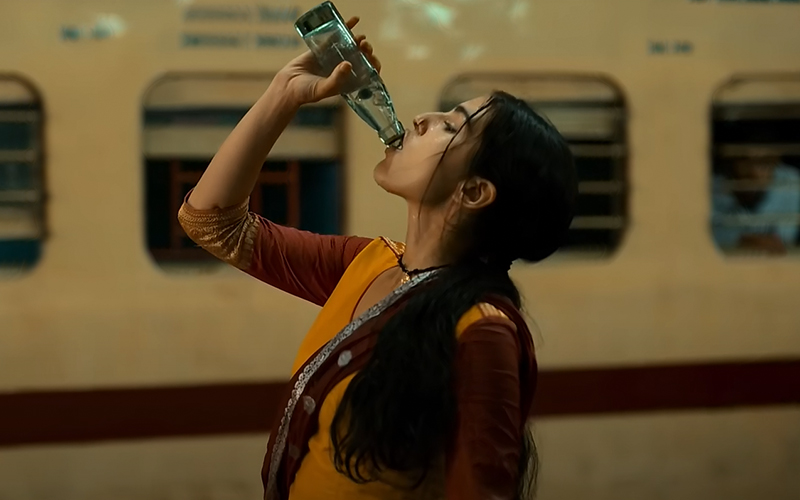The discussion around mental health issues and the need for therapists has reached unparalleled levels with the topic no longer being taboo but mainstream conversation.
In 2020, when the Covid19 outbreak happened, no one could have imagined the devastating effect it would have on people’s mental health. Two years down the line, the discussion around mental health issues and the need for therapists has reached unparalleled levels with the topic no longer being taboo but mainstream conversation. Meanwhile, films in India continue to portray mental health problems in diverse ways – some impactful and meaningful, some frivolously, and some cringe-worthy. The latest film to highlight this issue is ‘Atrangi Re’ but many felt it trivialised the trauma that Rinku (Sara Ali Khan) faces and gave a ‘magical’ solution to her problems. While the actors’ performances were appreciated, the handling of Rinku’s trauma and the way it was portrayed was not.
This is not the first time that the audience and critics have cried foul over the insensitive and/or incorrect portrayal of mental health issues in Indian cinema. And many mental health experts also share this view. Counselling Psychologist and Director, The Alternative Story, Paras Sharma, states, “I cannot think of any Bollywood examples where psychiatry or counselling has not been shown as something very distorted than what it actually is. You are either making fun of it or showing dungeons where people are sentenced to hell. Again, in therapy there are fantastical ideas largely based on what you see in Western sit-coms. You have no characters who are on medication leading normal lives – it’s either someone who’s extremely suicidal, self-destructive or going off the edge; mixing their drugs with alcohol, etc. Or the other extreme is that mental health struggles are overcome through love, travel and finding yourself.”
But award-winning screenwriter and editor Apurva Asrani believes things are changing, adding, “I think sensitivity towards most serious subjects is compromised in commercial cinema that caters to a lowest common denominator audience. Besides, we are a young country whose priorities have been roti, kapda, makaan first, but it is now that we are looking beyond physical health and even acknowledging the existence of mental health. I would say this has been expedited by the pandemic and the lockdowns. This is reflecting slowly in cinematic/ OTT portrayals too.”
Of course, films showcasing characters with mental health issues are not just confined to Bollywood but even other film industries. If we had Kangana Ranaut playing a schizophrenic in ‘Judgementall Hai Kya’, we saw Dhanush having Bipolar Disorder in ‘3’ and Shobana and Vikram having Dissociative Identity Disorder in ‘Manichitrathazhu’ and ‘Anniyan’ respectively. While these commercial films went on to become hits, how much society understood these mental health issues and took them seriously was another question.
Director, writer and producer Madhumita also believes that we need to understand much more about mental health as a society before we blame filmmakers for their on-screen portrayal. “As a society, mental health is a relatively new term and something that we haven’t really had the chance to understand, especially because of the incorrect stereotypes that come attached to it. Also, until the previous generation, the family unit – joint families – were prevalent therefore there was a form of support system one way or the other. Of course, this support system was in no way as efficient or monitored like a mental health professional / doctor would be. We also come from a culture where we are told not to air our dirty laundry in public and to brush difficult issues under the carpet.”
Today, mental health care is a major concern and need globally. So shouldn’t film directors not make movies around this subject unless they have a deep understanding of the subject? “It is a major concern and storytellers should do thorough research into the subject before tackling it. In ‘Aligarh’, when I wrote about depression and suicide in the marginalised LGBTQ community, we consulted psychiatrists, NGOs and survivors during the writing process. My show ‘Criminal Justice Beyond Closed Doors’, that made a case against marital rape, featured a protagonist with severe anxiety issues. We consulted psychiatrists and therapists every step of the way. We need to do this very responsibly,” says Apurva.
While many types of disabilities and disorders have been portrayed on screen in films and television, very few have been able to change the perception that society has of them. One of the films that managed to create awareness and change parents’ ideas about the learning disability, dyslexia, was Aamir Khan’s ‘Taare Zameen Par’. In fact, the movie went on to be screened at UNESCO’s first World Dyslexia Forum as well. But are all directors and writers as invested when writing characters with mental health issues?
Shah Rukh Khan’s portrayal of a therapist in ‘Dear Zindagi’ is far from reality, says Paras Sharma, adding that what people with mental health issues go through and what medication does is also inaccurately shown. He emphasises that filmmakers when writing such characters must reach out to those who have gone through these issues to have a clear understanding. “The reality of therapy and people living with such issues is not sexy enough; people want to spice it up. Talk to people without pre-set ideas and let that inform your portrayal of what a character’s mannerisms and behaviour should be like,” he advises.
But Madhumita reiterates that as a filmmaker she believes it is her responsibility to do her homework / research before broaching a topic of such magnitude. “I don’t believe in telling other people what is right and what is wrong but I as a filmmaker always ensure that I do my very best to get my facts checked before we go for shoot, out of respect for those suffering from such issues and also for the audience in general,” she adds.
Some filmmakers do believe that mental health conditions shouldn’t solely

